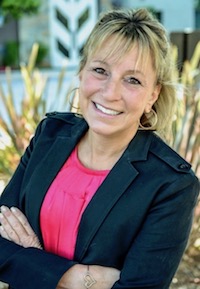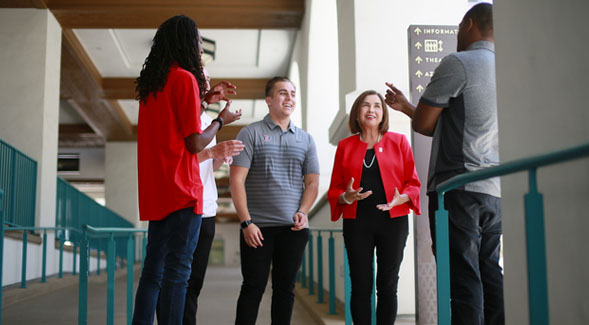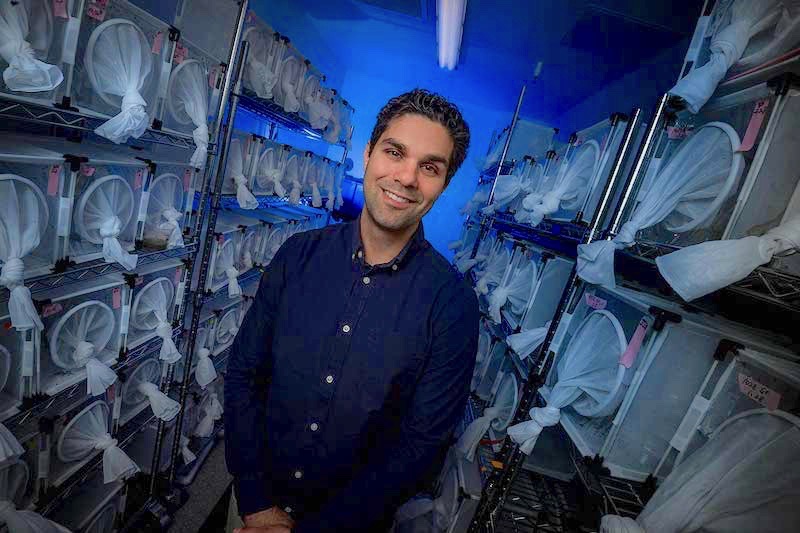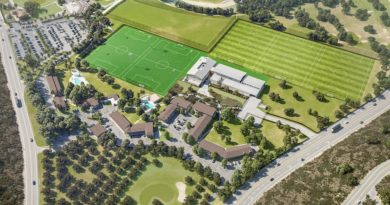Daily Business Report-March 14, 2019
Tax roposals this legislative cycle alone have included—so far— soda tax to fight obesity, a tire change tax for stormwater cleanup and a drinking water was to clean up toxic wells.
California has a giant surplus — of ideas for new taxes.
What’s up with that?
By Judy Lin | CALmatters
California is enjoying a projected $21.4 billion surplus. Three-quarters of the state believes any new revenue increase should be for voters to decide.
By population and percentage of personal income, this state already has the nation’s 10th highest tax burden. And the leader of the California Senate, Pro Tem Toni Atkins, has pointedly cautioned against any more levies that take cash out of the pockets of working families.
In short, California lawmakers needn’t look far for an excuse to avoid raising taxes. Whether Atkins’ fellow Democrats got the memo, however, isn’t clear.
Proposals this legislative cycle alone have included—so far— soda tax to fight obesity, a tire change tax for stormwater cleanup and a drinking water was to clean up toxic wells. Also a firearms excise tax, an oil and gas severance tax, and a fee on dialysis centers. Also an increase in lead-acid battery fees.
Democratic Gov. Gavin Newsom has embraced the drinking water tax. He’s also put forth a few new revenue streams, namely a monthly phone fee to upgrade the 911 emergency response system, possible higher payroll tax for babies to get six months of
paid family leave, and a state individual health mandate to replace the federal penalty repealed by Republicans.
There is, to be sure, some high-profile tax relief in this year’s record 2,628-piece pile of proposed legislation: Diapers, tampons, and pot have all been put forward for potential tax cuts.
__________________
Microlender Accion reports $4.7 million
in loans given to small businesses in 2018
Nonprofit lender Accion invested $4.7 million in loans to Southern California small business owners in 2018, with term loans ranging from $300 to $75,000, the organization reported. The organization experienced a 41 percent increase of number of loans funded and a 31 percent increase in dollars funded over 2017.

“We are so thrilled that we continue to see growth in our program after 25 years of lending,” said Accion CEO Elizabeth Schott. “The strong year-over-year growth continues to prove the need that Accion is filling a gap in the market.”
Southern California businesses received 308 loans from Accion in 2018, 212 of which went to business owners in San Diego County, totaling $3.2 million. In its 25-year history, Accion has disbursed nearly $39 million, totaling more than 4,465 loans to approximately 3,100 clients in the four-county region it serves: Imperial, Riverside, San Bernardino, and San Diego.
In 2018, Accion also served nearly 600 business owners through its training and event series. The series boasted 10 small business training events in the four-county region, with five hosted in San Diego County. It also included the Accion Academy for Entrepreneurial Success, a 10-week series of practical, hands-on training accompanied by one-on-one business counseling to empower individuals to become entrepreneurs and create jobs. The 2018 sessions graduated nearly 20 business owners through the training program.
The organization will formally celebrate its impact on Oct. 3 with a 25th anniversary event that will be held at the Sempra Energy headquarters in Downtown San Diego. When Accion formed in 1994, it started with a handful of staff and made five loans totaling $6,000 in its first year. Today it has a staff of 26 located in four offices throughout Southern California.
__________________
Jill Epstein named new executive director
of San Diego County Bar Association

Attorney and experienced association executive Jill Epstein will become the San Diego County Bar Association’s (SDCBA) new executive director, effective March 20, 2019.
Epstein comes to the SDCBA from Miracle Babies, a foundation that provides financial and emotional support to families with critically ill babies in the neonatal intensive-care unit, where she currently serves as the executive director. Previously, Epstein spent nearly seven years as the executive director of the California Association of Marriage and Family Therapists, an independent professional organization representing the interests of 32,000 licensed marriage and family therapists. She also served as the first chief operating officer of the California Massage Therapy Council, an organization created by the California Legislature to develop and implement statewide voluntary certification for massage therapists.
Epstein earned her Juris Doctor degree in 1992 and has spent her entire career in nonprofit organizations, including the American Medical Association, AARP and the Chartered Financial Analysts Society of Chicago.
Epstein serves on the Solana Beach School District Independent Citizens Oversight Committee and also volunteers as a driver for the Rides and Smiles program of Jewish Family Service of San Diego. She earned a Bachelor of Arts degree from the University of Michigan and her law degree from the American University Washington College of Law in Washington D.C. Epstein is a member of the District of Columbia Bar, the American Society of Association Executives, and the California Society of Association Executives.
“Jill Epstein is a highly-regarded and highly-accomplished professional association executive,” said Lilys McCoy, 2019 SDCBA president. “Her background and experience make her an ideal fit for the executive director role at the SDCBA, and she brings a unique perspective to our operations and governance. This is the beginning of an exciting new chapter for the SDCBA, and we are very proud to have Jill at the helm.”
__________________
Port of San Diego holds job fair today
for contract work at port facilities
The Port of San Diego is holding a job fair for opportunities associated with the ongoing Tenth Avenue Marine Terminal Redevelopment Project, other local projects, and the Port itself. The event is today from 4 to 7 p.m. in room 101 at the San Diego Continuing Education Center, Cesar E. Chavez Campus, 1901 Main St., San Diego, CA 92113.
Dick Miller Inc. of San Marcos has been awarded an $8 million contract to continue work under Phase I of the redevelopment project. Also referred to as the Tenth Avenue Marine Terminal Modernization, this major public works project will make the terminal more modern, clean and efficient. The Port is targeting this outreach to the neighborhoods around the terminal to ensure local workers know about the job opportunities that are available on this overall $24 million modernization, funded in part by a $10 million TIGER grant from the U.S. Department of Transportation.
Port staff, Dick Miller Inc., and project subcontractors will have information and will be available for questions about the redevelopment and other local job opportunities at the Port and on other Port projects.
__________________

Escondido Valley Center sold
to Orange County-based family trust
Escondido Valley Center, a 92,169-square-foot shopping center, has been sold to a family trust based in Orange County. The seller was Paragon Commercial Group of El Segundo.
Hanley Investment Group represented ther seller. CBRE represented the buyer.
Tenants ALDI, HomeGoods, BevMo!, and Staples represent 97 percent of the 100-percent-occupied shopping center. Most of the tenants are on new or recently extended long-term leases.
According to Hanley Investment Group’s President Ed Hanley, the company has sold four of the six ALDI-anchored shopping centers, which have traded hands in the last 18 months, totaling $89,550,000. For those ALDI-anchored centers, which sold for $10 million or more during this period, the average sale price was $23,715,000 representing a cap rate of 6.1 percent and the buyers were private investors.
CoStar lists the sale price of Escondido Valley Center at $24.9 million.
__________________

Community event will honor SDSU
president and university history
By La Monica Everett-Haynes
April 11 will mark a historic familial and community event at San Diego State University designed to honor the institution’s legacy and trajectory while formally charging SDSU President Adela de la Torre with the responsibilities of her administrative station.
The day-long inauguration, to include a special investiture ceremony – both of which are open to all – will be the first time SDSU has held an event of this type in more than two decades. It will also be only the fifth time the university has organized a presidential inauguration.
Such a rarity makes the inauguration a “once-in-a-generation event,” said anthropology professor Seth Mallios, the University History Curator.
“This ceremony and ritual mark a rite of passage; it is about an important transition. It is symbolic, and it is also very meaningful,” said Mallios, who will emcee the investiture. “These events are worth our time and effort, and these are the types of events where you bring your family. One day, you will say, ‘I was there.’”
All members of the on- and off-campus community are invited, and alumni are also encouraged to attend. Event details are available online, along with RSVP details.
__________________

Most teens register to vote
with no party preference
California will remain blue for years to come, and the GOP’s pain is generational, based on the latest pre-registration numbers. Through Feb. 10, 142,717 16- and 17-year-olds pre-registered to vote, Secretary of State Alex Padilla reports.
Their affiliation:
• No-party preference: 51.5 percent
• Democrats: 31.66 percent
• Republicans: 10.42 percent
— Dan Morain, CALmatters
__________________
San Diego State University
to host Kyoto Prize winner

As part of the annual Kyoto Prize Symposium, San Diego State University will host Stanford University Neuroscientist and Kyoto Prize recipient in Advanced Technology, Karl Deisseroth on Wednesday, March 20. Deisseroth, 46, is the youngest award recipient in the Kyoto Prize’s 34-year history.
The Kyoto Prize is awarded annually by the Inamori Foundation to outstanding scholars in the areas of advanced technology, basic sciences and art and philosophy.
Deisseroth, the D. H. Chen Professor of Bioengineering and of Psychiatry and Behavioral Sciences at Stanford, is credited with creating an innovative optical tool known as “optogenetics,” which enables researchers to manipulate neurons with unprecedented precision and visualize neural circuits in fine detail.
“As a result of this work, we know now which cells and connections across the brain actually control key behaviors of pleasure, reward, social interaction, and motivation to meet challenges — as well as, on the negative side, symptoms of anxiety, depression and fear,” Deisseroth said. “This optogenetic technology has taken hold throughout neuroscience and now enables us to test precise cellular basis for behavior by controlling the brain’s circuitry.”
Deisseroth’s 90-minute presentation will begin at 10 a.m. on March 20 in Montezuma Hall at the Conrad Prebys Aztec Student Union. The event is free and open to the public, but registration is requested. SDSU has also arranged for high school students to attend Deisseroth’s talk with the goal of introducing them to the university and the idea of pursuing careers in STEM (science, technology, engineering and mathematics) fields.
Click here to register
__________________
California Census Office awards $1.6 million
to United Way-led group to coordinate outreach
Counrt Me 2020, a coalition of over 100 community-based organizations and other partners led by the United Way of San Diego County, has been awarded a major contract of $1.66 million to coordinate Census 2020 outreach. The contract from the California Complete Count Committee designates United Way of San Diego County as the primary administrative community-based organization for San Diego and Imperial Counties (Region 10) with a mandate to ensure that everyone in the region is counted.
San Diego and Imperial Counties have some of the hardest to count regions in California, with an estimated 255,000 to 783,000 individuals considered extremely hard to count. The Count Me 2020 Coalition and its partners will use trusted community messengers across both counties to ensure that hard to count communities are accurately counted. This outreach by community-based organizations will also address specific language needs, crucial in a region with over 80 distinct languages.
A complete and accurate count is essential to ensure federal, state and county dollars are adequately distributed to local communities, as well as to determine future congressional seats.
__________________
Fish & Richardson principal selected for
Leadership Council on Legal Diversity

Fish & Richardson has selected principal Megan A. Chacon to join the Leadership Council on Legal Diversity’s 2019 Fellows program, a landmark program that identifies, trains and advances the next generation of legal industry leaders. The year-long Fellows Program provides its participants, who are committed to fostering diversity at their institutions and in the profession, with relationship-building opportunities, in-person training, peer-group projects and extensive contact with LCLD’s top leadership and the industry’s top teachers. Each class of Fellows also serves as mentors to those who follow.
A member of the firm’s Intellectual Property Litigation Group, Chacon recently was named a principal of the firm. Focusing her practice on complex patent litigation across a range of technologies, Chacon has extensive experience in the life sciences and pharmaceutical industries. She earned her J.D. from Boston University School of Law in 2011 and her B.S. in chemical engineering from the University of Utah in 2008.
__________________
Proposed federal budget gives Marine Corp
$45.9 billion for MQ-9 Reaper drones
The U.S. Marine Corps secured $45.9 billion from the proposed federal 2020 budget a figure that will support the acquisition of the service’s first fleet of General Atomics-built MQ-9 Reaper drones, National Defense Magazine reported.
The Marines’ budget for the next fiscal year is $2.7 billion higher than its 2019 level and includes $3.1 billion for acquisition of new technologies. The proposed budget allocated $77 million for the procurement of three new MQ-9 drones.
Rear Adm. Randy Crites, deputy assistant secretary of the Navy for budget, said the drone can “fulfill an urgent operational need for the marines as we intend to transition this as a program of record once we complete the program evaluation process.”



